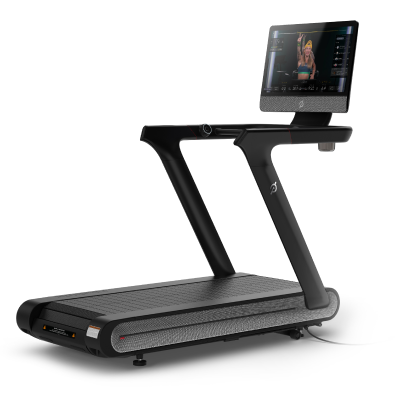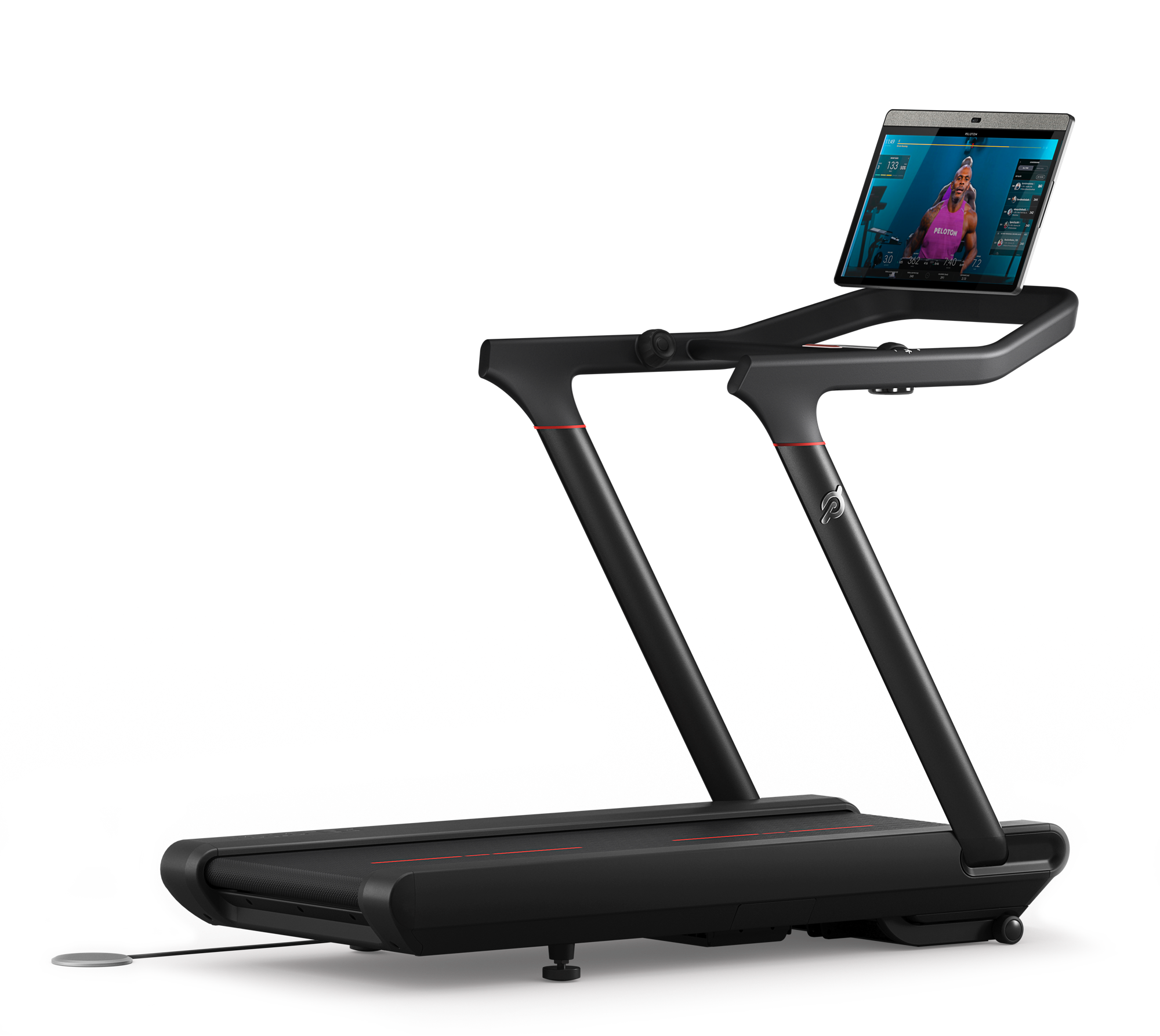
Portra Images / Stone via Getty Images
Running Can Feel Really, Really Challenging. These 12 Benefits Prove It’s Totally Worth It
These benefits of running show just how valuable the practice is your physical and mental wellbeing.
By Jennifer Heimlich•
After growing up as a competitive track and field athlete, Hannah Frankson completely gave up running in her mid-twenties. Sure, she knew that running had given her the sense of confidence, grounding, and stability that had shaped her into the adult she became. But after having done it at such an intense level for so long, she lost any desire to run. Then, she joined Peloton as an instructor—and rediscovered her love of the sport.
“Running has given me an outlet to be with myself and challenge myself as well as finding a great way to connect with people that I wouldn’t have been connected to had it not been for running,” Hannah says.
As she found out firsthand, the benefits of running can sometimes sneak up on you. It’s an activity that can leave you panting, and struggling, and soaking in your own sweat (and, yes, sometimes tears). But there are good reasons why so many people love running, and why health experts routinely recommend it. Read on to learn about some of the surprisingly powerful payoffs of lacing up for a run.

adamkaz / E+ via Getty Images
1. Science Shows Runners Typically Live About 3 Years Longer
If you’re hoping to lengthen your lifespan, taking up running is a great move you can make to promote long-term health: Science has suggested that, in general, runners live approximately three years longer than non-runners.
That’s because of how efficiently running boosts our cardiorespiratory fitness, which is the ability of your heart and lungs to take in oxygen then deliver it to your body efficiently, says exercise scientist Rachelle Reed, PhD. “Cardiorespiratory fitness is the leading predictor of lifespan that we have right now,” Reed says.
One large study found there’s no upper limit to the benefits, either—the better your cardiorespiratory fitness, the lower your risk of dying early. And it’s not just a minor difference: The Aerobics Center Longitudinal Study found that the most fit men and women had a whopping 43 percent and 53 percent lower risk (respectively) of dying from any cause when compared with the least fit people.
We get the most longevity benefit out of running when we make it a lifelong habit. Reed points out that unless we actively work to maintain our cardiorespiratory fitness, it will steadily decline with age. “So we want to be mindful to maximize that and then try to keep it up because we know that having better cardiorespiratory fitness can help us live longer and have higher quality life in those final years too,” she says.
2. The Mood Boost Is No Myth
The “runner’s high” is a real thing. “There’s so much data out there that supports that physical activity can really help improve mood through triggering the release of endorphins, which runners sometimes call a runner’s high,” says performance psychiatrist Brook Choulet, MD, president of the American Board of Sports & Performance Psychiatry. “That endorphin release boosts levels of serotonin, which is known as the happy neurotransmitter, as well as dopamine, which is the neurotransmitter that works in our reward pathway.” Together, that can leave you feeling both relaxed and on top of the world at the same time—making for a seriously powerful benefit of running.
3. Muscles Throughout Your Body Get Stronger
Most people think of running as mainly a leg workout. But in reality, “most muscles in the body have to work when running,” Hannah says. She points out that, yes, every muscle in the lower body has to kick in (think: calves, quads, hamstrings, glutes), but you’re also swinging your arms, which means your core has to turn on too. “I even think about the little muscles around your rib cage that contract and relax when you’re breathing heavily,” Reed adds.

4. It’s Simple
Although some runners will invest in extras like the latest smart watch, you don’t need anything fancy to go for a run. To experience the benefits of running, all you really need is a good pair of shoes, exercise clothes, and a good route (or a Tread), Hannah says.
That simplicity can make you more likely to actually exercise regularly, helping you build a consistent routine. And it can be powerful from a mental perspective too. “It is your whole body making the movement and nothing else, no extra equipment,” Hannah says, “and that can create such great shifts in mindset to remind yourself you have everything you need.”
5. Hitting a Range of Intensities Will Help You Become More Metabolically Flexible
When we’re doing low-intensity movement like walking or easy jogging, our body draws on a mix of fat and carbohydrates for fuel. But when we switch into a higher gear by running a little faster, our body turns to carbohydrates as the dominant source of energy. “And that is really important too,” Reed says. Efficiently using carbs as fuel “can help us better manage overall metabolism of glucose and all the carbohydrates that we’re eating in our diet,” she says.
Although the benefits of zone 2 cardio are getting a lot of press these days, Reed says that, for the biggest health benefits, we need to train both our aerobic and anaerobic systems by working out at a range of intensities. And running lets us do just that: Just mix in easy runs alongside harder efforts like sprint workouts throughout your week, and your body will get practice doing both.
6. You Might Find Yourself Sleeping Better
The night after a good, hard run, it sometimes feels easier to fall asleep—and stay asleep— when you hit the pillow. That’s because aerobic exercise helps to regulate our production of melatonin, the hormone that tells our body when to sleep or not. “The physical exertion of running can actually lead to deeper and more restorative sleep,” Dr. Choulet says.
One meta-analytic review found that regular exercise benefited sleep in a number of ways, including how long it takes to fall asleep, total sleep time, sleep quality, and how much time you’re actually sleeping while in bed (rather than, you know, tossing and turning). This is not only beneficial for our physical health, but our mental health too, Dr. Choulet points out.
Of course, running isn’t a silver bullet to restorative snoozes. But even if you still struggle to get your Zzzs after exercising more, running can still be a useful tool: One study found the negative associations of poor sleep were worse for folks who didn’t exercise as much.
7. The Running Community Is a Powerful Place
One of Hannah’s favorite benefits of running is the people she’s met through it. Running alongside others, either in person or through friendly competitions on the Peloton Leaderboard, can be a powerful bonding experience. Even if you run alone on the trails or a treadmill, you can connect to people who are eager to cheer you on in places like the Peloton App with a virtual high five. Or, you can join a group run in your community to get a few high fives IRL.
8. Your Bones Will Thank You
Unlike walking, when we’re running, we have to momentarily leave the ground between steps. Landing back down again sends high-impact forces through your body—and that can be a good thing. “That loading of the skeletal system can be really helpful for maintaining bone health with age,” Reed says.
Indeed, one small study that measured male runners’ bone mineral density in four different places in the legs and hips found it was higher in every single one of those areas than in people who were sedentary.
9. It Gives You Time to Be More Mindful
Between work, taking care of our families, and getting sucked into TikTok, many of us never take a minute out of our days to check in with ourselves—even if we know how powerful a few moments of meditation can be. But, if you want it to be, running can be a form of mindful movement.
“While you’re running, you can incorporate mindfulness: Focus on your breath, the rhythm of your steps, how your body is feeling,” Dr. Choulet says. “All those things are ways to channel your mind back to the present moment rather than getting lost in your thoughts.”
10. Running Can Help Stabilize Your Blood Sugar
To go on a long, steady run, your body pulls sugar out of the blood and into the muscles in order to fuel your strides. This can help to regulate your blood glucose levels, which is why doctors often recommend a regular exercise regimen like running to patients with prediabetes or type 2 diabetes. Research has even shown that as little as two weeks of high-intensity interval training or moderate-intensity steady state exercise could reverse prediabetes nearly 40 percent of the time.
11. It’s a Powerful Tool for Mental Health
Running can reduce stress so effectively that Dr. Choulet actively prescribes it to her patients as a way to feel better without medication. “Stress is a factor for developing anxiety and depression,” she says. Although running is by no means a replacement for therapy and medication for those who need it, knocking out a few miles can be one tool that can help you manage your mental health. And it doesn’t take much: A systematic review and meta-analysis found that even people who only exercised half the recommended amount had an 18 percent lower risk of depression compared to folks who didn’t report any physical activity.
12. No Matter Your Level, Running Can Build Confidence
Hannah points out that running is a sport that nearly anyone can take up. Even better: You’ll clearly see your improvement over time.
“One day, you might only be able to run for one minute, a week later three or four minutes, a week later a couple bursts of five-minute runs,” she says. “Before you know it, you’ve built up to a place you never even knew you were capable of.” There’s nothing like the confidence boost of crossing a finish line you never thought you’d reach.
So, What Does It Take to Start Running?
You don’t need to sign up for a marathon to get the benefits of running. “If you’re simply looking to live a healthier daily life and have a better quality of life, really, just focus on small micro-interventions, where maybe it’s running for 15 minutes every morning,” Dr. Choulet says.
To begin running, you’ll first want to make sure you’ve got a good pair of running shoes. Then you can start off with a mix of running and walking, switching back and forth between the two every few minutes; over time, you can increase the amount you spend running as it becomes more comfortable. Just be sure not to go too hard out the gate: Keep the effort manageable so you don’t get hurt or burned out.
If you want a little more guidance, you can follow along with an expert-designed program like one of the 5K training plans on the Peloton App. Or you can take advantage of the many beginner-friendly classes on the Peloton Tread and Tread+. However you get started, know you’re doing something good for yourself, so pat yourself on the back as you soak up all the amazing benefits of running.

Peloton App
Access thousands of classes with no equipment needed.
This content is for informational and educational purposes only and does not constitute individualized advice. It is not intended to replace professional medical evaluation, diagnosis, or treatment. Seek the advice of your physician for questions you may have regarding your health or a medical condition. If you are having a medical emergency, call your physician or 911 immediately.
Explore Peloton Treads
Take your runs to the next level
Lace up and enter your email to get articles, instructor tips, and updates from Peloton sent to your inbox.
By providing your email address, you agree to receive marketing communications from Peloton.
For more about how we use your information, see our Privacy Policy.













